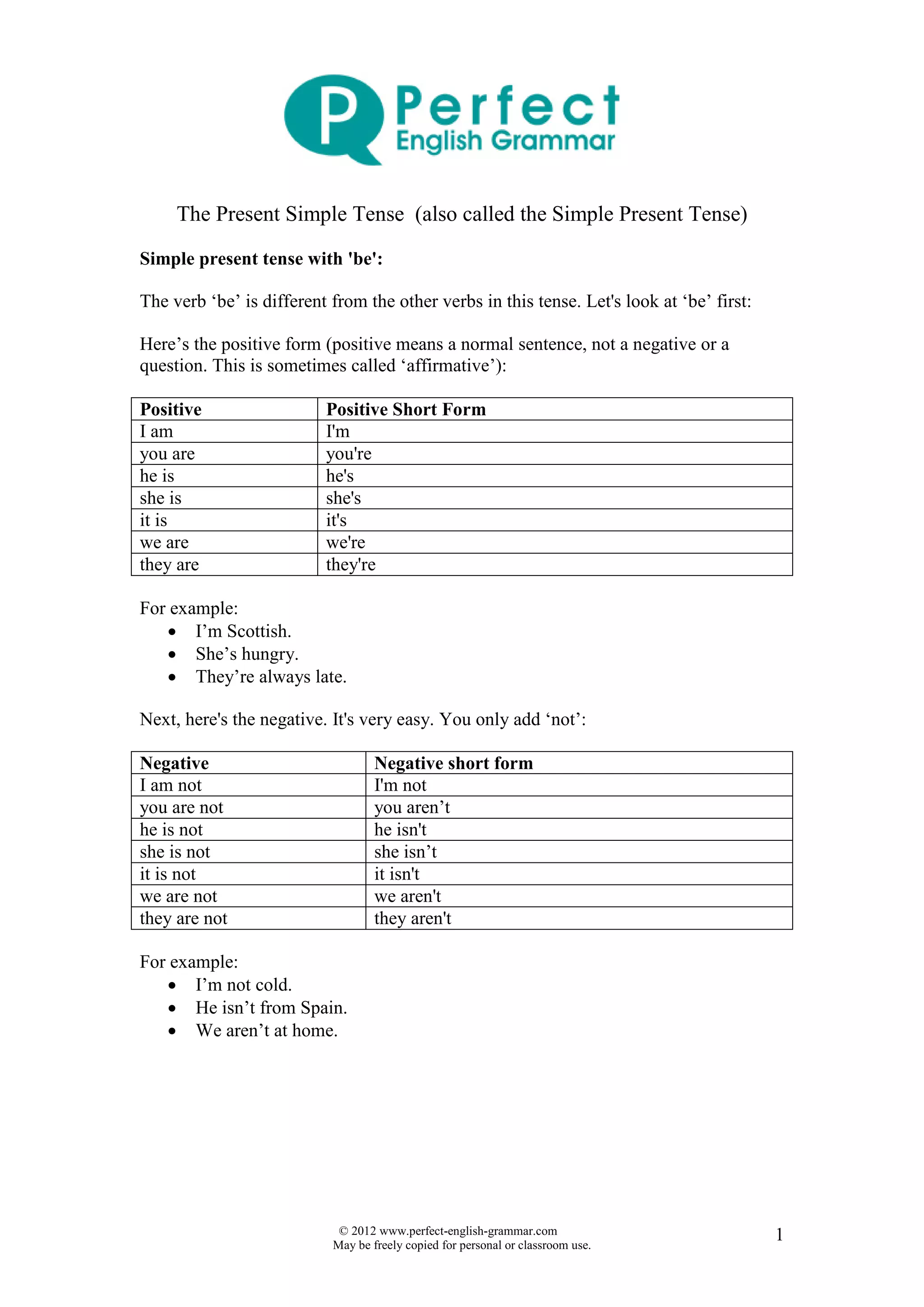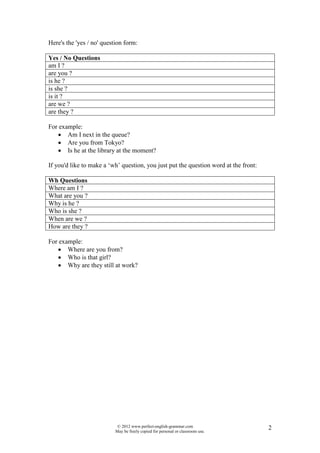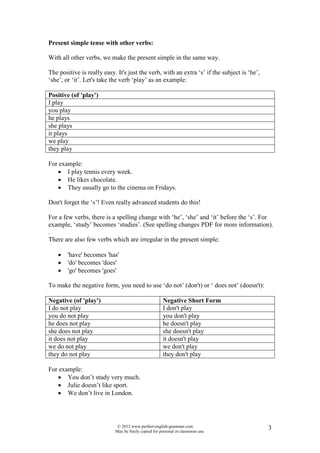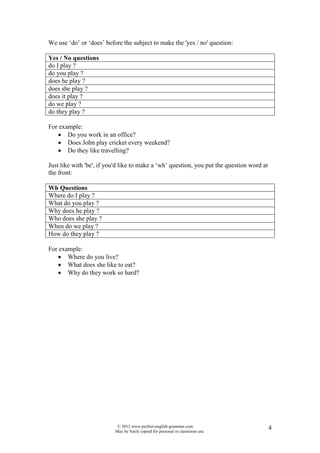The document discusses the present simple tense in English. It explains the forms of to be (am, is, are) in positive, negative, and question forms. It then explains the forms of other verbs like play, which add -s in third person singular positive forms and use do/does for negatives and questions. Questions can be yes/no or "wh" questions by placing the question word at the start. The present simple tense is used to express habitual or repeated actions.



